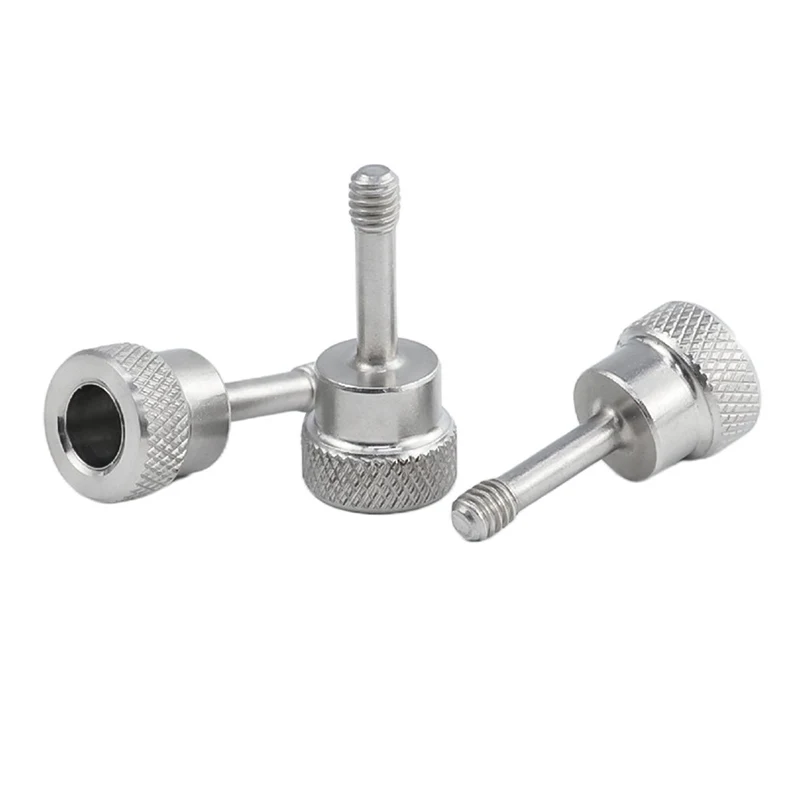What is the Difference Between CNC Machining and 3D Printing?
2025-09-19
When it comes to modern manufacturing, one of the most common questions raised is: What is the difference between CNC machining and 3D printing? Both processes are widely used in industries such as automotive, aerospace, medical devices, and custom component production. While they share the same goal of producing high-quality parts, their principles, efficiency, and applications are very different. Shenzhen Zhihexing Electromechanical Co., LTD. has invested years of expertise into both technologies, particularly excelling in CNC Machining of Non-Standard Fasteners. Through this article, our aim is to provide a clear comparison so that you can better understand how each process supports your production needs.
Overview of CNC Machining
CNC machining is a subtractive process where material is removed from a solid block using computer-controlled cutting tools. Our factory uses advanced CNC equipment to deliver precision, repeatability, and durability. This method is ideal for producing metal and plastic components that require high accuracy and excellent mechanical strength. The CNC Machining of Non-Standard Fasteners is one of our most requested services because it ensures stability, tolerance, and customization for various industries.
Overview of 3D Printing
3D printing, or additive manufacturing, builds parts layer by layer from digital models. Instead of cutting away material, this method creates components directly by fusing powder, resin, or filament. It is highly effective for prototyping, low-volume production, and designs with complex geometries. However, compared with CNC machining, the surface finish and mechanical strength can be limited depending on the chosen material and technology.
Detailed Comparison of CNC Machining and 3D Printing
To better explain what is the difference between CNC machining and 3D printing, the following table highlights the key parameters we work with in our factory. This comparison demonstrates why Shenzhen Zhihexing Electromechanical Co., LTD. continues to rely heavily on CNC Machining of Non-Standard Fasteners for industrial-grade projects while also adopting 3D printing for rapid development.
| Parameter | CNC Machining | 3D Printing |
|---|---|---|
| Process Type | Subtractive (removes material) | Additive (builds layer by layer) |
| Material Options | Metals (aluminum, steel, titanium), plastics, composites | Polymers, resins, some metals, composites |
| Surface Finish | Smooth and precise, ready for use | May require post-processing for smoothness |
| Tolerance Accuracy | High precision, up to ±0.01 mm | Moderate, typically ±0.1 mm |
| Production Volume | Efficient for medium to large batches | Best suited for prototypes and small batches |
| Mechanical Strength | Excellent durability and performance | Limited, depends on material and technology |
| Applications | Functional parts, CNC Machining of Non-Standard Fasteners, automotive, aerospace | Prototypes, models, medical devices, customized items |
FAQs on What is the difference between CNC machining and 3D printing?
Q1: What is the difference between CNC machining and 3D printing in terms of production speed?
A1: CNC machining is typically faster for medium to large batch production because once the setup is complete, parts can be produced continuously. 3D printing is faster for prototypes or single pieces since it eliminates tooling, but it can be slower for larger volumes. Our approach combines both depending on project needs, ensuring clients receive the best balance of time and efficiency.
Q2: What is the difference between CNC machining and 3D printing when considering cost efficiency?
A2: CNC machining requires higher initial setup costs due to tooling and machine preparation, but it becomes cost-effective at scale. 3D printing involves lower upfront investment, making it economical for low-volume and prototype production. At Shenzhen Zhihexing Electromechanical Co., LTD., our factory evaluates each project to recommend the most cost-efficient process, especially when working on CNC Machining of Non-Standard Fasteners where long-term savings are crucial.
Q3: What is the difference between CNC machining and 3D printing in material strength?
A3: CNC machining offers superior material strength because parts are made from solid blocks of metal or engineering-grade plastics. 3D printing, while versatile, may not achieve the same mechanical performance for heavy-duty applications. This is why our factory emphasizes CNC Machining of Non-Standard Fasteners for clients needing strong, durable, and high-precision components under demanding conditions.
Why Choose Us?
In conclusion, the choice between CNC machining and 3D printing depends on your project goals. If you need high accuracy, durability, and volume production, CNC machining is the best option. If you require prototypes or complex geometries with minimal material waste, 3D printing is the way forward. By partnering with Shenzhen Zhihexing Electromechanical Co., LTD. and the brand Zhihexing, clients can access both technologies, ensuring flexibility and professional support from our factory. Whether it is standard parts or CNC Machining of Non-Standard Fasteners, our team delivers solutions that align with your technical and commercial expectations.
